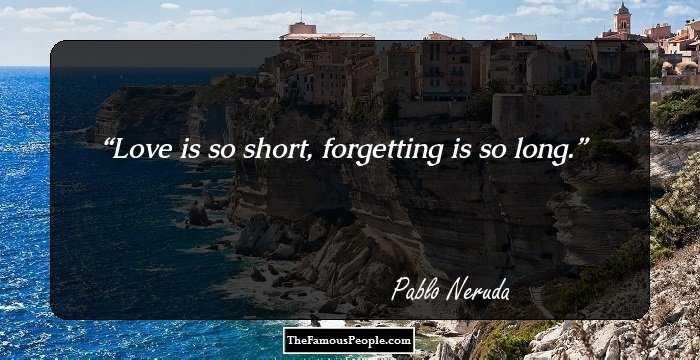

The young poet's intention in publishing under a pseudonym was to avoid his father's disapproval of his poems. He is thought to have derived his pen name from the Czech poet Jan Neruda, though other sources say the true inspiration was Moravian violinist Wilma Neruda, which name appears in Arthur Conan Doyle's novel A Study in Scarlet. By mid-1920, when he adopted the pseudonym Pablo Neruda, he was a published author of poems, prose, and journalism. In 1919, he participated in the literary contest Juegos Florales del Maule and won third place for his poem "Comunión ideal" or "Nocturno ideal". From 1918 to mid-1920, he published numerous poems, such as "Mis ojos" ("My eyes"), and essays in local magazines as Neftalí Reyes. On 18 July 1917, at the age of 13, he published his first work, an essay titled "Entusiasmo y perseverancia" ("Enthusiasm and Perseverance") in the local daily newspaper La Mañana, and signed it Neftalí Reyes. Neruda's father opposed his son's interest in writing and literature, but he received encouragement from others, including the future Nobel Prize winner Gabriela Mistral, who headed the local school. He composed his first poems in the winter of 1914.

Neruda grew up in Temuco with Rodolfo and a half-sister, Laura Herminia "Laurita", from one of his father's extramarital affairs (her mother was Aurelia Tolrà, a Catalan woman). On September 26, he was baptized in the parish of San Jose de Parral. His father, José del Carmen Reyes Morales, was a railway employee, and his mother Rosa Neftalí Basoalto Opazo was a school teacher who died two months after he was born on 14th September.

Ricardo Eliécer Neftalí Reyes Basoalto was born on 12 July 1904, in Parral, Chile, a city in Linares Province, now part of the greater Maule Region, some 350 km south of Santiago. The Colombian novelist Gabriel García Márquez once called him "the greatest poet of the 20th century in any language", and the critic Harold Bloom included Neruda as one of the writers central to the Western tradition in his book The Western Canon. Neruda is often considered the national poet of Chile, and his works have been popular and influential worldwide. Pinochet, backed by elements of the armed forces, denied permission for Neruda's funeral to be made a public event, but thousands of grieving Chileans disobeyed the curfew and crowded the streets. It was concluded that he was suffering from prostate cancer.

However, an international forensic test conducted in 2013 rejected allegations that he was poisoned. Although it was long reported that he died of heart failure, the Interior Ministry of the Chilean government issued a statement in 2015 acknowledging a Ministry document indicating the government's official position that "it was clearly possible and highly likely" that Neruda was killed as a result of "the intervention of third parties". Neruda died in his house in Isla Negra on 23 September 1973, just hours after leaving the hospital. Neruda was hospitalized with cancer in September 1973, at the time of the coup d'état led by Augusto Pinochet that overthrew Allende's government, but returned home after a few days when he suspected a doctor of injecting him with an unknown substance for the purpose of murdering him on Pinochet's orders. He was a close advisor to Chile's socialist President Salvador Allende, and, when he got back to Chile after accepting his Nobel Prize in Stockholm, Allende invited him to read at the Estadio Nacional before 70,000 people. Friends hid him for months in the basement of a house in the port city of Valparaíso, and in 1949 he escaped through a mountain pass near Maihue Lake into Argentina he would not return to Chile for more than three years. When President Gabriel González Videla outlawed communism in Chile in 1948, a warrant was issued for Neruda's arrest. Neruda occupied many diplomatic positions in various countries during his lifetime and served a term as a Senator for the Chilean Communist Party. Neruda became known as a poet when he was 13 years old, and wrote in a variety of styles, including surrealist poems, historical epics, overtly political manifestos, a prose autobiography, and passionate love poems such as the ones in his collection Twenty Love Poems and a Song of Despair (1924). Ricardo Eliécer Neftalí Reyes Basoalto (12 July 1904 – 23 September 1973), better known by his pen name and, later, legal name Pablo Neruda ( in Spanish Castilian ˈpaβlo neˈɾuða/), was a Chilean poet-diplomat and politician who won the Nobel Prize for Literature in 1971. July 26, 1989) Matilde Urrutia Cerda (also called Matilde Rosario Urrutia Cerda) (1965–1973) (d. Mar 27 1965) Delia del Carril (1943–1965) marriage valid in Mexico (d.


 0 kommentar(er)
0 kommentar(er)
